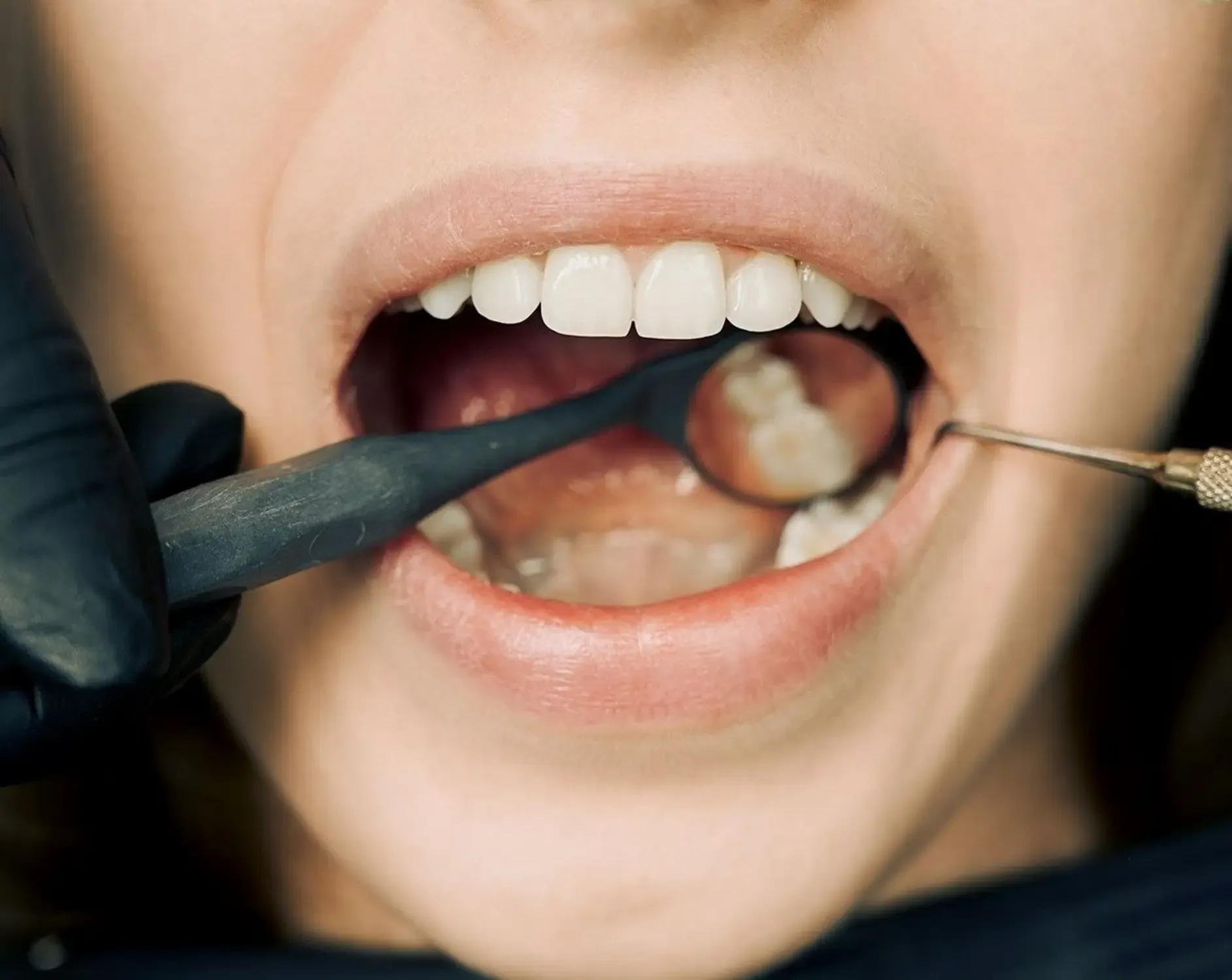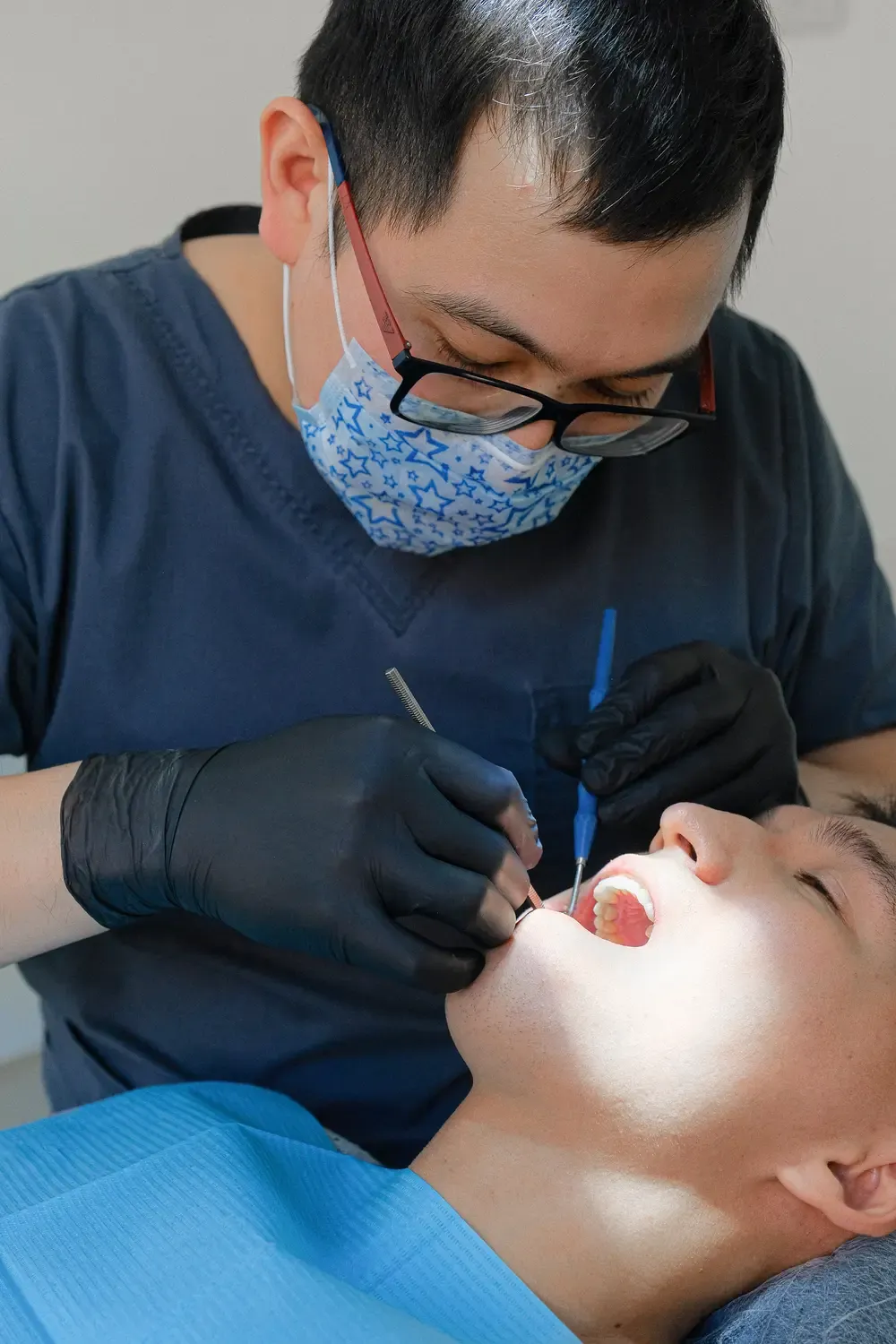Ever Wondered: What Does a Healthy Mouth Look Like? Here's The Signs of A Winning Smile!
A healthy mouth is more than just straight, white teeth, a LOT more. You're about to learn all the stuff you wish you already knew (and some things you never wanted to know).

Hey there, have you ever stopped to think about the importance of good oral hygiene? You might be surprised to know that taking care of your teeth and gums isn't just about having a bright and white smile. In fact, poor oral hygiene can lead to a host of health problems that extend far beyond your mouth.
In this article, we're going to dive into the world of good oral care and explore what happens when we don't take proper care of our teeth and gums. From cavities and gum disease to more serious health issues like heart disease and diabetes, we'll explore the wide-ranging impact that poor oral hygiene can have on your overall health.
But don't worry, it's not all doom and gloom. We'll also discuss what a healthy mouth looks like and share some simple yet effective tips for keeping your teeth and gums in tip-top shape. From brushing and flossing to making smart dietary choices, we'll give you all the tools you need to maintain a happy mouth and a healthy body. So let's get started!
LEARNING IS POWER
Stuff You'll Wish You Always Knew
What are the Dangers and Side Effects of Poor Oral Hygiene?
Let's get real here - when it comes to oral hygiene, a lot of us slack off from time to time. Maybe we skip brushing our teeth before bed, or we forget to floss after a meal. But did you know that these seemingly small actions (or lack thereof) can have major consequences for our health?
First off, poor oral hygiene can lead to tooth decay, dry mouth, painful sores, persistent bad breath, and gum disease. These conditions are not only painful and uncomfortable, but they can also lead to tooth loss, oral cancer, and even infections that spread to other parts of the body.
But the effects of poor oral hygiene don't stop there. Studies have shown that there's a direct link between oral health and overall health. In fact, poor oral hygiene has been linked to serious health issues like heart disease, stroke, and diabetes.

How can this be, you might ask? Well, when we neglect our teeth and gums, harmful bacteria can build up in our mouths. This bacteria can then travel through our bloodstream and cause inflammation in other parts of our bodies. This inflammation can lead to a host of health problems, from clogged arteries to insulin resistance.
What Good Oral Looks Like and The Benefits
Now that we've talked about the dangers of poor oral hygiene, let's shift our focus to what a healthy and hygienic mouth should look like and the benefits of maintaining good oral health.

In a perfect world, a healthful mouth should be free of pain, sensitivity, and bleeding gums. Your teeth should be clean and free of plaque and tartar, and your gums should be pink and firm. Your breath should be fresh, and your tongue should be clean and pink. But let's be realistic, life isn't perfect and the only people who get close to that kind of amazing mouth are supermodels. But everyone needs a goal to aim for, right?
So, what are the benefits of maintaining good oral health? For starters, as mentioned earlier, good oral hygiene can help prevent tooth decay, gum disease, and bad breath. When our mouths are well cared for, not only do we see signs of a healthy mouth, but we can also enjoy a wider variety of foods and beverages without worrying about pain or sensitivity.

But the benefits don't stop there. Studies have shown that good oral health can also lead to better overall health and reduced inflammation in our mouths. It can also lead to better sleep, improved digestion, and a stronger immune system.
So if you're not already taking care of your oral health, there's no better time to start than now. Make a habit of brushing twice a day, flossing regularly, and scheduling regular dental check-ups. Not only will your mouth look and feel better, but your whole body will thank you!
WHAT YOU CAN DO STARTING TODAY
Healthy Tips
How to Improve Your Oral Health
Healthy Gums (its not about just your teeth)
When it comes to taking care of your mouth, most of us tend to focus more on our teeth. However, it's really important to not overlook the health of your gums, because they play a crucial role in keeping your teeth strong and healthy.
One of the most effective (and obvious) ways to care for your gums is by brushing. You should aim to brush your teeth at least twice a day, using a soft-bristled toothbrush and a fluoride toothpaste as well. Be sure that you are brushing gently along your gum line, as this will help to remove any bacteria or plaque buildup that can lead to gum disease.
Flossing (as much as we like to procrastinate doing it) is also an essential part of taking good care of your gums. It helps to remove any left over food particles or other debris that may be stuck between your teeth and gums. Aim to floss at least once a day, and be sure to use a gentle, back-and-forth motion to avoid damaging your gums.

In addition to brushing and flossing, there are a few other steps you can take to keep your gums healthy. For instance, avoiding tobacco products is crucial, as smoking and chewing tobacco can increase your risk of gum disease and other oral health problems.
You can also promote gum health by eating a balanced diet that is rich in fruits, vegetables, and whole grains. Foods that are high in vitamin C, such as citrus fruits, can also help to strengthen your gums and protect against infection.

Healthy Teeth
Not only does good dental health help you to eat and speak properly, but they can also boost your confidence and self-esteem.
So, what can you do to keep your teeth healthy and strong? Not surprisingly, it's very similar to how we keep our gums healthy. Let's take a look:
- Brush twice a day: Sounds oddly familiar doesn't it? Again, it's recommended that you use a soft-bristled toothbrush and a fluoride toothpaste. But unlike brushing your gums where you want to be extremely gentle and only a couple seconds per spot, for strong teeth, be sure to brush all surfaces for at least two minutes each time.
- Floss: Again, be sure to floss at least once daily
- Eat a healthy diet: A diet that is rich in calcium, phosphorus, and vitamin D can help to keep your teeth strong. Avoid sugary and acidic foods, which can erode your tooth enamel and lead to cavities.
- Avoid tobacco: Quitting is the best thing you can do for your oral and overall health.

Visit your dentist regularly for an oral health exam: Regular dental checkups and cleanings can help to prevent oral health problems and catch them early on when they are easier to treat. Your dentist can also provide you with personalized recommendations for how to improve your oral hygiene habits.
Healthy Oral Tissues
Your oral tissues are more than only your gums, they include your gums, tongue, and cheeks. You know by now that healthy oral tissues can help to prevent infection, reduce inflammation, and improve your overall oral health.

So, lets talk about what you can you do to care for your oral tissue. Here are some tips (you're welcome):
- Brush your tongue: Just like yo mamma always said! Why? Because your tongue can hold onto bacteria that can often leads to bad breath and other oral health problems. To keep your tongue clean and healthy, be sure to brush it gently with your toothbrush or a tongue scraper at least once a day and reap the benefits of more pleasant or neutral breath.
- Use a mouthwash: Mouthwash is like tiny superheroes that can kill bacteria and freshen your breath. Look for a mouthwash that contains ingredients like menthol or eucalyptol, which can help to reduce inflammation and improve the health of your oral tissues.

- Eat a healthy diet: You want a diet that is rich in vitamins and minerals, including vitamins C and E, which help to promote happy and healthy oral tissues. Oh! And be sure to eat plenty of fruits, vegetables, and whole grains, and avoid sugary and acidic foods that can erode your oral tissues. Funny how all that stuff our parents said turned out to be true after all. Maybe they weren't as clueless as we always thought, Lol.
- Stay hydrated: We can't stress this enough, drinking plenty of water can help to keep your oral tissues moist and healthy. Try to drink at least eight glasses of water a day (if not more), and avoid sugary drinks that can contribute to tooth decay and other oral health problems.

In Conclusion:
Good oral hygiene takes daily commitment, but the benefits far outweigh the time and effort put in. Not only can you avoid a slew of potential health problems from infections to heart disease, but enjoy a variety of health improvements like reduced inflammation and better sleep. Things you would never expect.
So let's make a pact to take care of our teeth and gums, not just for the sake of a pretty smile, but for the sake of our whole bodies. Your mouth will thank you, and so will your heart, your brain, and the rest of your body!


